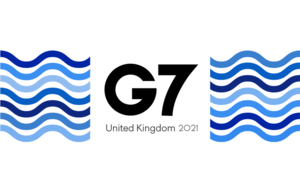G7 Advisory Council sets out detailed vision for gender equality
The Gender Equality Advisory Council sets out the scale of the challenge of making progress on gender equality in the age of COVID-19.

-
Powerful report sets out the scale of the challenge of making progress on gender equality in the age of COVID-19
-
Recommendations call on G7 Leaders to take concrete steps to build back better for women and girls from the pandemic, and proposes robust monitoring and accountability mechanism to hold G7 governments to account on gender equality commitments and progress
-
Specific focus on UK G7 Presidency priorities of education and STEM (Science, Technology, Engineering and Mathematics), empowerment and ending violence against women and girls
An international expert panel on gender equality has today published its report Building back better for women and girls after a series of discussions on how to create opportunities for women and girls, with a focus on ‘what works’. It expands on the recommendations that the Gender Equality Advisory Council (GEAC) made to G7 Leaders in June 2021 on action to drive forward gender equality.
The GEAC is an independent group of experts convened by Prime Minister Boris Johnson under the UK’s G7 Presidency. The GEAC champions the core principles of freedom, opportunity, individual humanity and dignity for women and girls around the world.
Council Chair Sarah Sands and Nobel peace prize laureate Dr Denis Mukwege presented the Council’s initial recommendations to G7 Leaders at the Summit in Cornwall in June, a number of which were taken forward as commitments in the Carbis Bay Communiqué (PDF). This included specific action on girls’ education, addressing the underrepresentation of women in STEM and strengthening the international response to conflict-related sexual violence.
This report builds on the GEAC’s 14 recommendations with additional background, evidence and examples, and a particular focus on ‘what works’ in order to provide governments and organisations with a strong framework on which to build. It also includes draft proposals for an accountability mechanism to monitor G7 commitments to achieve gender equality on an annual basis, in response to an invitation from leaders at the G7 Summit.
The report highlights the real-world impacts of gender inequality, referring in particular to the situation facing women and girls in Afghanistan, on which the Council published an open letter in August. The report also sets out how GEAC recommendations apply in Cornwall, as the location of this year’s Leaders’ Summit.
In the context of the continued COVID-19 pandemic, the work of the Council and its recommendations were heavily focused on the disproportionate burden faced by women over the last 18 months, and their role in the global economic recovery. The report calls on the G7 to show leadership and demonstrate what can be achieved with effective interventions in justice, education, science, health, the workplace, and our economies.
Chair of the Gender Equality Advisory Council, Sarah Sands, said:
Our independent-mindedness was matched by a fierce sense of purpose and urgency. We were meeting – virtually – not only in the middle of a pandemic but also with a colossal, economic iceberg ahead of us. Our first imperative was to ensure that women, and particularly women of colour, were not overlooked in the recovery, as they so often were during the pandemic.
Foreign Secretary and Minister for Women and Equalities, Liz Truss, welcomed the report in her capacity as Ministerial lead for the GEAC, saying:
We need to ensure that women across the world have access to education and employment and are free to live their lives without fear of violence.
The work of the Gender Equality Advisory Council will help focus minds on the task at hand, providing a base to advance gender equality globally and encapsulating our forward thinking G7 presidency. I look forward to working with Council members as we continue our mission to build back better, not only in this country but across the world.
GEAC member, Global Economist and Former Minister of Investment, Trade and Industry in Botswana, Bogolo Kenewendo, said:
The 2021 GEAC has developed a set of recommendations that have relevance in any country’s COVID-19 recovery policies; they are evidence based, practical and measurable.
To that end, the report includes a proposal for a gender equality monitoring and accountability mechanism for the G7. It is important to maintain traction on the key issues of educating girls, empowering women and ending violence against women and girls, and build on progress through future G7 GEACs.
GEAC member, CEO of the Global Partnership for Education, Alice P. Albright, said:
One of the core issues raised by the GEAC is a call for 12 years of quality education for all. The G7 has shown unprecedented political will around girls’ education, and this is a powerful first step. If the G7 want to meet their policy priorities - whether around trade, climate change, diplomacy or peace - universal girls’ education is the proven answer. But this means urgently implementing existing targets and commitments, investing greater proportions of aid into global education and making girls’ education a permanent feature of all future G7 presidencies to secure sustainable change.
Notes to editors
The report seeks to answer 3 questions:
- How are women and girls in the G7 and globally affected by the issues that the 2021 GEAC raised as areas for particular attention by G7 Leaders?
- How has the COVID-19 pandemic changed the way women and girls, and gender equality, are impacted by these issues?
- How can G7 countries build back better to advance gender equality, based on evidence of what works, and the knowledge and experience of GEAC members?
To support this, each chapter explores the drivers behind each issue, their impact, and evidence-based solutions.
Members of the 2021 GEAC include world-leading scientists, business leaders, economists, public sector leaders, human rights and democracy advocates and international development experts, from across the G7 countries and beyond.